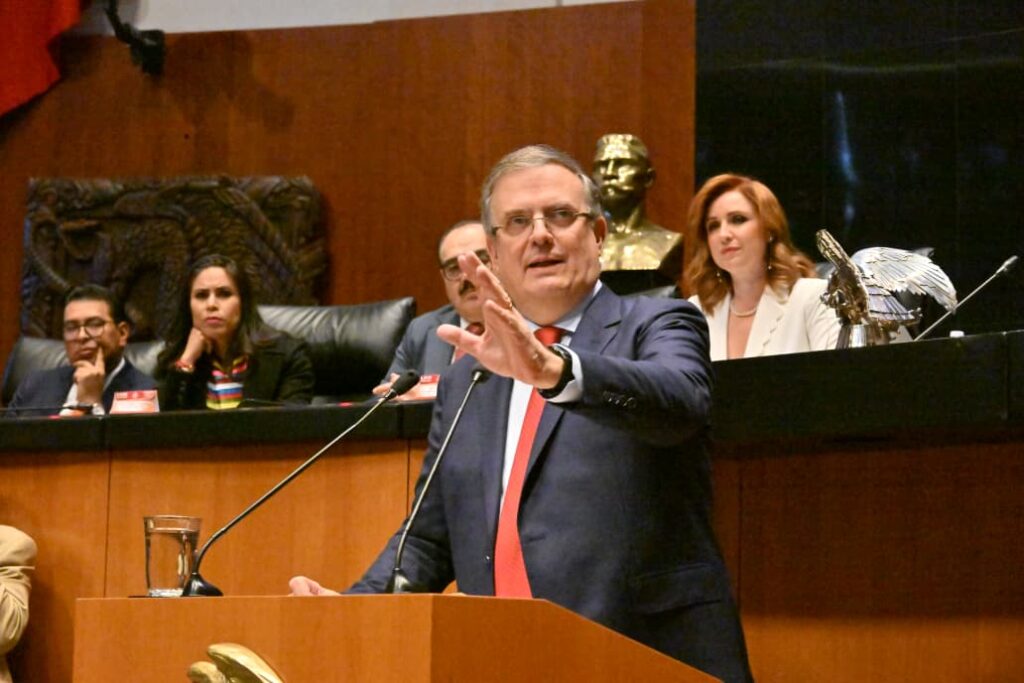Mexican Economy Secretary Marcelo Ebrard requested the Senate‘s participation in USMCA consultations.
During his appearance before the Senate on Wednesday, Ebrard indicated that he has been in contact with two Senate committees involved in the USMCA review.
“We have been trying to share information and get as close as possible to your points of view,” he said.
Senate participation in USMCA consultations
The July 1, 2026 review of the USMCA will allow for an evaluation of its performance, public comments, and a decision on whether to renew it for 16 years. The USTR will submit recommendations to Congress before January 2026.
“And I would think it would be very positive, of course, if you so decide, that the committees you have formed to monitor the agreement, for the economy, can also participate in the consultation processes in whatever manner you see fit,” Ebrard told the senators.
The Mexican Senate will actively participate in the USMCA review. It will coordinate with the Ministry of Economy, hold national forums, collect proposals from various sectors, and, in the event of modifications, be responsible for approving changes to the treaty.
Public consultations
The USMCA review process varies among the three countries. In Mexico, consultations are conducted by state. In the United States, this is not the case, and Canada applies a mixed model. Each nation defines its own participation mechanisms.
In Mexico, consultations will conclude in January, when a collaboration model will be presented that will include the private sector, the labor movement, and the Senate. The latter plays a decisive role in defining national positions.
During the 2019 negotiations, when the United States proposed the “safe third country” agreement, the Senate was key. In a session of the Political Coordination Board, all the forces represented agreed to reject that measure.
The agreement was set out in a joint document that strengthened Mexico’s position vis-à-vis Washington. That experience reinforces the importance of dialogue between the executive and legislative branches in the review of the USMCA.
“It is very important that the Senate of the Republic participate. And from our point of view, it would not be something that complicates the negotiations, but rather something that underpins them, setting the limits of the treaty review,” Ebrard concluded.

